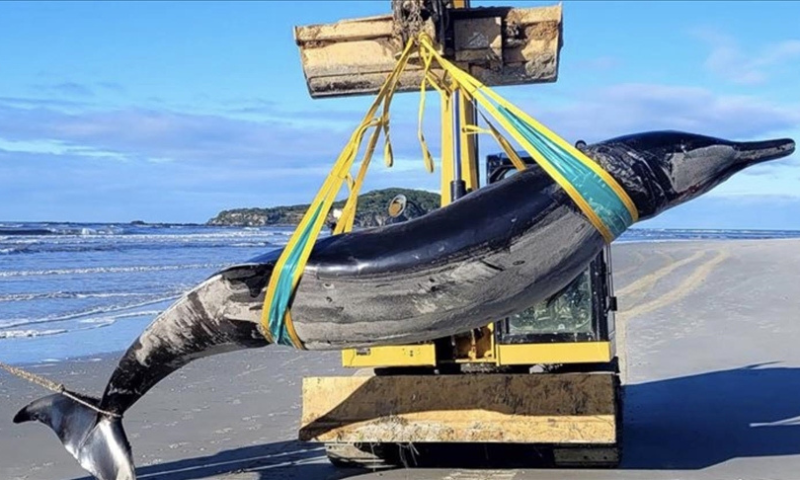CHRISTCHURCH, New Zealand: The body of a spade-toothed whale, an incredibly rare species never seen alive, was found on a beach in New Zealand, sparking significant interest among scientists.
The five-meter (16.4-foot) long whale was discovered near a river mouth in southern Otago province on July 4 and has been identified as a male spade-toothed whale by marine-mammal experts from New Zealand’s Department of Conservation.
A DNA investigation is currently underway to confirm the whale’s classification. Gabe Davies, the conservation department’s coastal Otago operations manager, highlighted the rarity of the species, noting that since the 1800s, only six samples have been documented worldwide, with all but one originating from New Zealand. This discovery offers a unique opportunity for scientific study and conservation.
The whale’s remains are being preserved in cold storage, and genetic samples have been sent to the University of Auckland for analysis. This process may take months. The conservation department emphasized the international importance of this discovery, indicating that further actions regarding the whale’s body will require careful consideration.
The spade-toothed whale was first described in 1874 based on a lower jaw and two teeth collected from the Chatham Islands. Subsequent skeletal remains found in New Zealand and Chile confirmed the species. Despite these findings, little is known about the spade-toothed whale due to its extreme rarity, and it is classified as “data deficient” under New Zealand’s Threat Classification System.
Marine scientist Vanessa Pirotta pointed that researchers would study the stomach contents, genetics, and how this specimen is compared to previous ones that were found in the past. This research could provide insights into the whales’ behavior, population, and reasons for their rarity, making this discovery akin to “hitting the jackpot.”
The first intact specimen was a mother and calf found in Bay of Plenty in 2010, and another specimen was added to the collection from a 2017 stranding in Gisborne. This latest find is fresh enough to allow for dissection, potentially revealing more about this elusive species.























